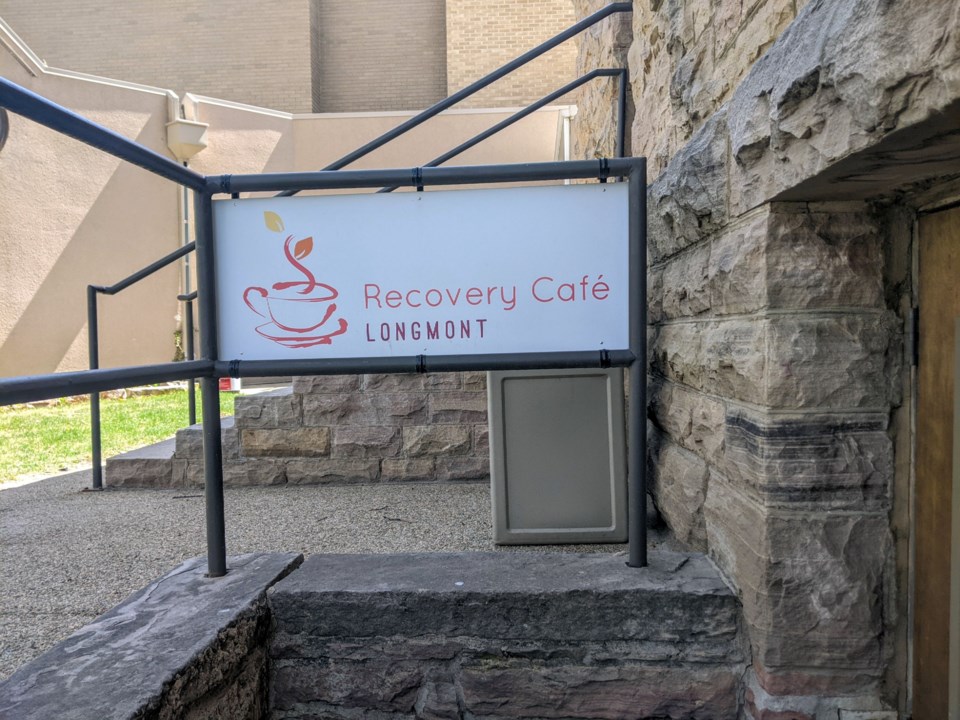Longmont’s Recovery Café is preparing for a leadership transition as the program continues to offer support for people in the community with trauma and addiction.
Lisa Searchinger has been the executive director of Longmont’s Recovery Café since it was established nearly five years ago. Jennifer Jepsen will be taking over the position on July 1 after a months-long transition process.
The Recovery Café offers a unique model to help community members recover from addiction. Housed in the basement of the CENTRALongmont Presbyterian Church at 402 Kimbark St. but separate from the church, the program requires members to be drug and alcohol free for 24 hours, meet weekly with a Recovery Circle and contribute to maintaining the physical space.
Searchinger first heard about the Recovery Café network while working as the executive director of Homeless Outreach Providing Encouragement, a Longmont nonprofit providing services for people experiencing homelessness. She attended a community meeting with government, nonprofit and faith leaders in Longmont — which Jepsen also attended.
Searchinger felt that the model was unlike anything else offered in Boulder County and addressed a huge need.
“I heard somebody give a speech in Seattle at one of their fundraisers and she said, ‘Recovery is the key to ending homelessness,’” Searchinger said. “That was a lightning bolt moment. I went, wow, if recovery is the key to ending homelessness then I’m all in. Boy, would I love to see that in Longmont, because I had been working with homelessness for about five years and knew that we needed some different strategies for solutions”
It was decided that Recovery Café would be its own nonprofit with Searchinger at the helm, but she noted that they continue to work closely with HOPE on an almost daily basis.
The cafe was envisioned to start at the church as a way to get established and build a base for the first two or three years of the operation, but then COVID-19 hit and things went on pause. Searchinger said that the church has been a welcoming and supportive space, but due to the basement’s lack of handicap accessibility and the fact that the building can be a barrier for some looking to recover, the plan has always been to move into a different space.
“We’re pretty close to figuring out where we’re going to be and what it’s going to cost,” she said.
Searchinger had wanted to stay on as executive director through the transition to a new building but some health issues related to her vision have accelerated her departure from the role.
It was last summer, when Jepsen was serving on the Recovery Café board, that the idea that she might be a good fit for executive director came up. The café board unanimously supported Jepsen taking over the executive director role, and the transition has been several months in the making.
Jepsen is currently getting her master’s in social work, which includes 900 hours of interning that she has spent at the Safe Shelter of the St. Vrain Valley and the Refuge Café in Broomfield, a different but similar operation to the Recovery Cafe.
“It’s a wonderful way to continue what I love to do, which is community,” Jepsen said. “Especially in light of our current situation with mental health, trauma, housing and substance use in the community, it felt like just a natural use of my desires, my talent, my education and kind of the culmination of my life up to this point.”
Jepsen said she’ll be initially focused on learning and building trust, along with guiding the Recovery Café through its transition to a new location when that happens. She’ll also be invested in expanding community partnerships both with local government, other agencies and the community as a whole to reach more people who need these types of services.
As for Searchinger, who continues to help guide Jepsen through the transition, she plans to continue helping out at the cafe for the foreseeable future.
“I’ll figure out some way to stay involved because I just care too much,” Searchinger said. “It means so much to me. It’s not just the mission, it’s also the people and the work that’s been done. The work just means too much to me, and I’m not ready to stop working.”



